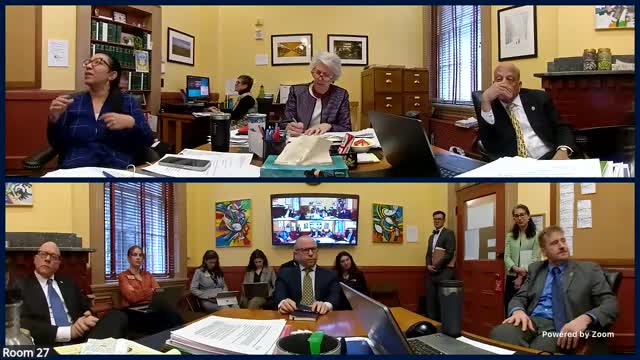Committee signals support to explore assistant attorney generals’ right to organize; AG’s office asks for draft language
Get AI-powered insights, summaries, and transcripts
Subscribe
Summary
Members discussed draft language to give assistant attorney generals the right to organize, and the attorney general’s office signaled willingness to engage in drafting but requested a concrete proposal to review and negotiate before the end of session.
The committee debated whether to include a one‑sentence provision recognizing assistant attorney generals’ right to organize and heard the attorney general’s office describe legal and operational complications that merit negotiated language.
Sarah London, chief assistant attorney general, told the committee the AG’s office was willing to work with legislators and stakeholders to produce draft language but underscored that the subject is complex and that other states have taken differing approaches. "Other states that have collective bargaining of AAGs is collective bargaining of all state lawyers," London said, summarizing examples such as California and New Jersey and noting the potential for constitutional and administrative issues.
Members said they wanted to signal support for assistant attorney generals’ ability to organize while acknowledging the AG’s request for time to review specifics. Several senators suggested following the approach used for deputy state’s attorneys — a multi‑draft, collaborative statutory drafting process that resolves employer unit definitions and exclusions by statute rather than leaving them to the labor board.
The committee did not adopt final statutory language at the meeting. Members asked the AG’s office and interested parties (including VSEA and labor representatives) to work with committee staff to draft language for consideration later in the session and signaled they would support continued negotiation that could lead to a fuller bill before the House takes further action.
